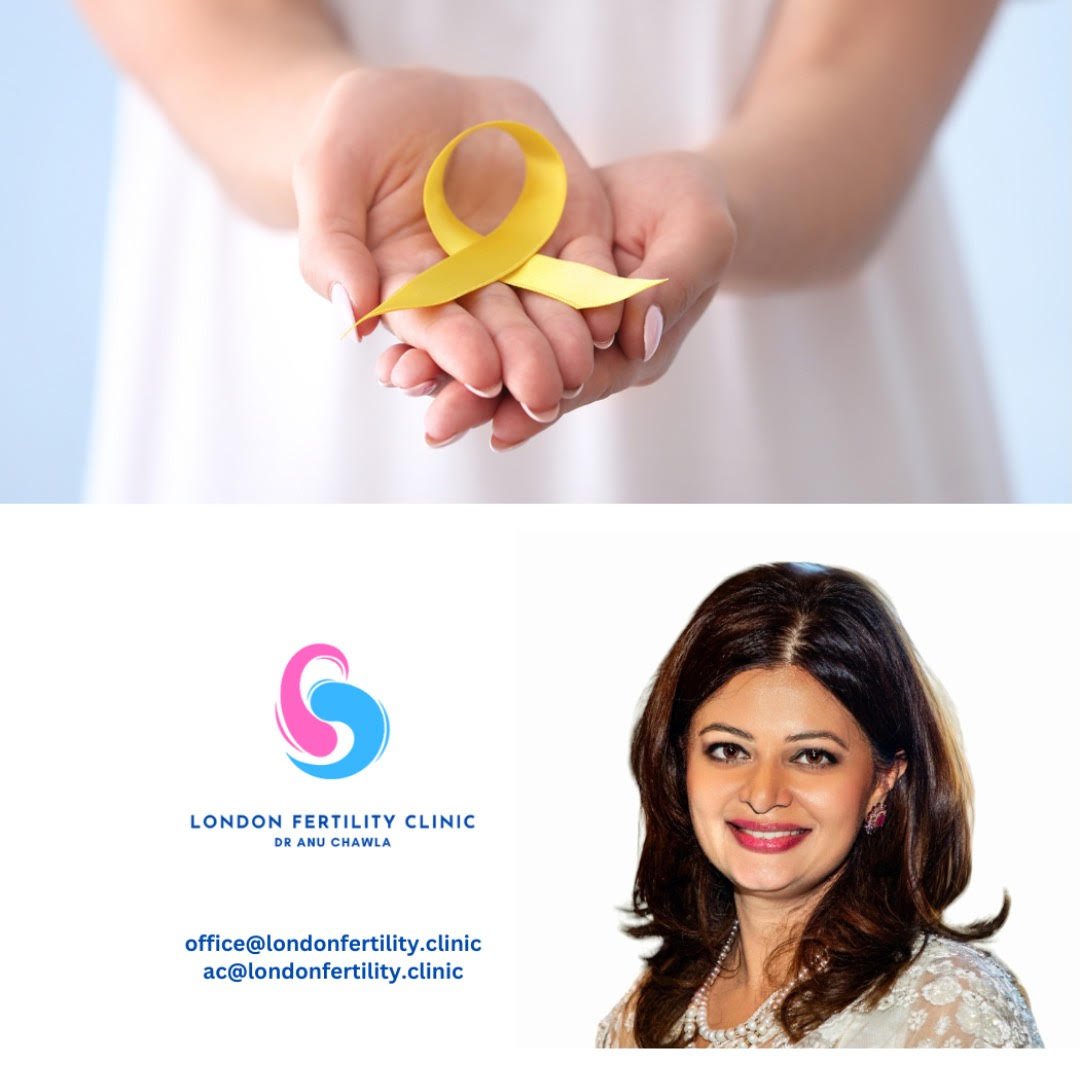Dr. Anu Chawla at FIGO Biennial Conference 2025, Cape Town- We are delighted to share that Dr. Anu Chawla had the privilege of attending the FIGO (The International Federation of Gynecology and Obstetrics) Biennial Conference 2025 in the breathtaking Mother City, Cape Town. At this prestigious global event, Dr. Chawla spoke on several cutting-edge topics, including:
Integrating Artificial Intelligence in ART Treatments
Fertility Preservation: When and How
Polycystic Ovarian Syndrome (PCOS)
In addition, she had the honor of chairing a session on The Contributors to the Metabolic Syndrome, fostering insightful discussions among leading experts in gynecology and reproductive medicine. Dr. Chawla’s participation reflects our clinic’s commitment to staying at the forefront of reproductive medicine and bringing the latest global advancements in fertility care to our patients.
Honoured to chair the session on Reproductive Medicine & Assisted Reproduction at the Royal College of obs and gynecology -RCOG World Congress 2025 in London. Every presentation reflected true passion, clinical relevance, and excellence in practice.
Dr Chawla was Honoured to speak at the 29th European Board EBCOG Congress,sharing trends evidence and views on the role of Artificial Intelligence and Genomics in the Future of Asssited Reproductive Technologies and Endometriosis care .
Dr Anu Chawla, has been the invited Speaker at the Annual Meeting of the World Society of Endometriosis and Uterine Disorders, 2024, at Geneva, and highly praised for her work and presentation.
The GnRH Agonist Trigger: A Revolution in IVF
Treatment In the world of fertility treatments, innovations can change everything. One such innovation is the GnRH agonist (GnRHa) trigger protocol, which has transformed how we approach in vitro fertilization (IVF), particularly in preventing ovarian hyperstimulation syndrome (OHSS) and enhancing reproductive outcomes.
**Introduction to GnRHa Trigger**
The GnRHa trigger protocol emerged as a solution to prevent OHSS, a serious complication of IVF characterized by enlarged ovaries and fluid accumulation. Traditionally, human chorionic gonadotropin (hCG) was used to trigger egg maturation, but it posed risks for OHSS. GnRHa trigger works differently—it causes a temporary flare-up of hormones similar to a natural cycle, but with shorter duration and less impact on the body compared to hCG.
**OHSS Prevention** For patients at risk of OHSS, GnRHa trigger combined with freezing of all embryos has become a game-changer. By avoiding a fresh embryo transfer and instead freezing embryos, we can safely manage OHSS risk without compromising reproductive success.
**Fresh Embryo Transfer Challenges**
Initially, using GnRHa for triggering egg maturation and then transferring embryos fresh posed challenges. Early studies showed unexpectedly low pregnancy rates with GnRHa triggers, mainly due to insufficient support for the luteal phase—the period after egg retrieval and before pregnancy confirmation.
**Understanding the Luteal Phase**
The luteal phase is crucial for embryo implantation and early pregnancy support. GnRHa trigger initially led to low levels of luteal phase hormones, particularly LH, which affected progesterone levels needed for successful implantation.
**Development of the Protocol** Over years of research and refinement, clinicians learned to supplement the luteal phase with LH activity, such as small doses of hCG, to support the corpus luteum (the structure that forms after egg release and produces hormones critical for early pregnancy).
**Improving Reproductive Outcomes**
Through adjustments in the protocol—like adding small doses of hCG—midluteal progesterone levels improved significantly. This change boosted ongoing pregnancy rates from initial lows to much more promising levels, demonstrating the importance of proper luteal phase support.
**Meta-Analysis and Acceptance**
Initially met with skepticism, the GnRHa trigger eventually gained acceptance after meta-analyses and further research validated its effectiveness. Today, it is widely acknowledged as a safe and effective method in IVF, particularly in reducing OHSS risk and improving pregnancy outcomes.
**Personalized Care**
The evolution of the GnRHa trigger also ushered in a shift towards personalized medicine in fertility treatments. Clinicians now monitor luteal phase hormones closely and tailor treatment plans to individual needs, ensuring optimal conditions for embryo implantation and pregnancy.
**Future Prospects**
Looking ahead, advancements continue to refine the GnRHa trigger protocol. Research explores new ways to enhance luteal phase support and further improve outcomes, aiming for even higher success rates in both fresh and frozen embryo transfer cycles.
**Conclusion**
In conclusion, the GnRH agonist trigger protocol has revolutionized IVF practice, offering a safer alternative to traditional methods and significantly improving outcomes for patients worldwide.
**Final Thoughts**
The GnRHa trigger protocol has evolved into a cornerstone of modern fertility care. Embraced by the IVF community, it continues to shape the way we design IVF treatments to meet the hope of couple in their journey to a successful parenthood
Evaluation of your medical health before starting IVF / ICSI - A Crucial Clinical Skill
The significance of evaluating medical disorders before undergoing in vitro fertilization (IVF) cannot be overstated, as it plays a crucial role in ensuring the safety and success of the procedure. IVF is a complex assisted reproductive technology (ART) that involves the fertilization of an egg with sperm outside the body, followed by the transfer of the resulting embryo into the uterus.
While IVF has revolutionized the treatment of infertility for many couples, it is not without risks, particularly for individuals with underlying medical disorders. Therefore, thorough evaluation of medical conditions prior to IVF is essential to identify and mitigate potential complications. One of the primary reasons for evaluating medical disorders before IVF is to assess the overall health of the prospective parents. Certain medical conditions, such as diabetes, hypertension, and autoimmune disorders, can impact fertility and pregnancy outcomes. For example, uncontrolled diabetes can increase the risk of miscarriage, birth defects, and complications during pregnancy.
Similarly, women with autoimmune disorders may face challenges related to fertility and pregnancy, as these conditions can affect reproductive organs and hormonal balance. By identifying and managing these medical disorders before IVF, healthcare providers can optimize the health of the prospective parents and improve the chances of a successful pregnancy. Furthermore, evaluating medical disorders allows healthcare providers to tailor the IVF treatment plan to the individual needs of the patient.
Each medical condition may require specific considerations during the IVF process to minimize risks and maximize the likelihood of a positive outcome. For instance, women with polycystic ovary syndrome (PCOS) may require different ovarian stimulation protocols compared to women without the condition. Similarly, individuals with genetic disorders may benefit from preimplantation genetic testing to screen embryos for chromosomal abnormalities before transfer. By customizing the IVF treatment approach based on the patient’s medical history and needs, healthcare providers can optimize the chances of a successful pregnancy while minimizing potential complications. In addition to optimizing treatment outcomes, evaluating medical disorders before IVF allows healthcare providers to identify and address any potential barriers to conception or pregnancy.
Certain medical conditions, such as endometriosis and uterine fibroids, can affect fertility by interfering with the implantation of embryos or causing recurrent miscarriages. By diagnosing and treating these conditions before IVF, healthcare providers can improve the chances of a successful pregnancy. Moreover, addressing underlying medical disorders can help reduce the risk of complications during pregnancy, such as preterm birth and preeclampsia, thereby promoting the health and well-being of both the mother and the baby.
Beyond the individual level, evaluating medical disorders before IVF is essential for ensuring the safety and efficacy of the procedure on a broader scale. By identifying and addressing medical conditions that may pose risks during IVF, healthcare providers can minimize the likelihood of adverse events and optimize the overall success rates of the treatment. This not only benefits the patients undergoing IVF but also contributes to the advancement of reproductive medicine by improving the safety and outcomes of assisted reproductive technologies.
In conclusion, the significance of evaluating medical disorders before undergoing IVF cannot be understated. By assessing the overall health of the prospective parents, tailoring treatment plans to individual needs, identifying and addressing potential barriers to conception or pregnancy, and ensuring the safety and efficacy of the procedure, healthcare providers can optimize the chances of a successful pregnancy while minimizing potential complications. This comprehensive approach not only benefits the patients undergoing IVF but also contributes to the advancement of reproductive medicine as a whole
Dr Chawla , is awarded
fIN Award 2023, importantly , after having being nominated by her own patients and colleagues.
Dr Chawla is invited ,
to sign at the Prestigious
House of Commons Book ,
Decoding the Success Rates of In Vitro Fertilization (IVF): 3rd June 2024
A Comprehensive Analysis In the realm of reproductive medicine, In Vitro Fertilization (IVF) stands as a beacon of hope for countless individuals striving to realize their dreams of parenthood. Yet, beneath the surface of this groundbreaking procedure lies a complex landscape of success rates, variables, and evolving technologies. In this elucidative journey, we delve into the intricacies of IVF success rates, exploring the factors that influence outcomes and the advancements propelling this field forward.
**Author - Dr Anu Chawla, Senior Fertility Specialist , London** office@londonfertility.clinic
**Understanding IVF Success Rates** Before embarking on the journey of IVF, prospective parents are often intrigued by the question: What are the chances of success? IVF success rates are typically measured by the live birth rate per cycle, offering a tangible metric for assessing the procedure's efficacy. However, interpreting these rates requires a nuanced understanding of the variables at play.
**Age and Fertility: The Crucial Nexus**
Age stands as one of the most influential determinants of IVF success. As women age, their ovarian reserve diminishes, affecting both the quantity and quality of eggs available for fertilization. Consequently, advanced maternal age correlates with lower success rates in IVF cycles. For instance, individuals under 35 often boast higher success rates, with the chances declining progressively beyond this threshold.
**Embryo Quality: The Keystone of Success**
In the realm of IVF, not all embryos are created equal. The quality of embryos generated during the fertilization process significantly impacts the likelihood of successful implantation and subsequent live birth. Morphological assessments and genetic screenings play pivotal roles in identifying viable embryos, offering insights into their developmental potential and chromosomal integrity.
**Reproductive History and Underlying Conditions**
Previous reproductive history, including prior IVF attempts and pregnancy outcomes, can shape the trajectory of future cycles. Additionally, underlying medical conditions such as polycystic ovary syndrome (PCOS), endometriosis, and male factor infertility may influence IVF success rates. Tailored treatment approaches, informed by comprehensive medical evaluations, aim to optimize outcomes for individuals navigating these complex scenarios.
**Lifestyle Factors and Environmental Influences**
Beyond biological determinants, lifestyle factors and environmental influences exert subtle yet significant effects on IVF success rates. Factors such as body mass index (BMI), tobacco use, alcohol consumption, and stress levels can impact reproductive health and treatment outcomes. Embracing holistic approaches that prioritize wellness and stress management may enhance the prospects of success in IVF journeys.
**Technological Advancements: Pioneering Progress**
The landscape of IVF continues to evolve, driven by relentless innovation and technological advancements. From time-lapse imaging systems that monitor embryo development to preimplantation genetic testing (PGT) techniques that enhance embryo selection, pioneering technologies are revolutionizing the field. These advancements hold promise for improving success rates and refining the precision of IVF procedures.
**The Role of Psychological Support**
Navigating the IVF journey can evoke a spectrum of emotions, ranging from hope and anticipation to anxiety and despair. Recognizing the psychological toll of fertility treatments, comprehensive care models integrate psychological support services to bolster resilience and well-being. Cultivating a supportive environment that addresses the emotional needs of individuals and couples undergoing IVF is paramount to fostering holistic healing and empowerment.
**Beyond Success Rates: Embracing Individual Narratives**
While success rates provide valuable insights into the statistical probabilities of IVF outcomes, they encompass only a fraction of the broader narrative. Behind each statistic lies a unique journey filled with personal triumphs, setbacks, and unwavering resilience. Embracing the richness of individual narratives transcends numerical metrics, affirming the profound impact of IVF on the lives of countless families worldwide.
**Looking Ahead: The Future of IVF**
As we gaze towards the horizon, the future of IVF brims with possibility and potential. Advancements in assisted reproductive technologies, coupled with a deeper understanding of reproductive biology, herald a new era of personalized medicine. From the refinement of laboratory techniques to the optimization of treatment protocols, ongoing research endeavors strive to redefine the boundaries of possibility in fertility care.
**Conclusion**
In the tapestry of human existence, the journey towards parenthood embodies a profound quest imbued with hope, resilience, and unwavering determination. Within the realm of IVF, success rates serve as guiding beacons, illuminating the path towards the realization of cherished dreams. Yet, beyond the numerical confines of statistics, lies the essence of the human experience—filled with intricacies, complexities, and immeasurable love. As we traverse the landscape of IVF, may we embrace the tapestry of individual narratives, honoring each journey with empathy, compassion, and boundless support. In the continuum of life, the promise of IVF transcends mere statistics, embodying the triumph of the human spirit and the timeless pursuit of hope against all odds.
**Dr Anu Chawla** office@londonfertility.clinic
Patients , known cases of Multiple sclerosis , planning to do IVF/ ICSI / Egg Freezing /Embryo freezing, please read the reassuring evidence by a multi-centre data published in october 2022
Endometriosis affects millions of women worldwide, causing debilitating pain and impacting daily life in profound ways. Despite its prevalence, there remains a lack of understanding and awareness surrounding this condition. By raising awareness, we can empower individuals to seek proper diagnosis, treatment, and support, ultimately improving the quality of life for those living with endometriosis. Together, let's break the silence, educate others, and advocate for better care and research to ensure that no one suffers in silence.
Endometriosis affects millions of women worldwide, causing debilitating pain and impacting daily life in profound ways. Despite its prevalence, there remains a lack of understanding and awareness surrounding this condition. By raising awareness, we can empower individuals to seek proper diagnosis, treatment, and support, ultimately improving the quality of life for those living with endometriosis. Together, let's break the silence, educate others, and advocate for better care and research to ensure that no one suffers in silence.
At the recent Edinburgh conference on endometriosis research, several notable updates emerged. Researchers presented promising findings regarding novel treatment approaches, including targeted therapies aimed at reducing inflammation and pain associated with endometriosis. Additionally, advancements in diagnostic tools and techniques were highlighted, offering hope for earlier and more accurate detection of the condition. Moreover, discussions centered on the importance of interdisciplinary collaboration and patient-centered care in driving progress forward. Overall, the conference provided a platform for exchanging ideas and fostering collaborations to improve outcomes for individuals affected by endometriosis.
Imaging plays a crucial role in the diagnosis and management of endometriosis. Techniques such as transvaginal ultrasound (TVUS), magnetic resonance imaging (MRI), and occasionally computed tomography (CT) scans can help visualize endometrial lesions and assess their size, location, and extent. These imaging modalities aid in surgical planning, allowing for more precise and targeted treatment. Additionally, advances in imaging technology, such as high-resolution MRI and three-dimensional (3D) imaging, are enhancing our ability to detect subtle lesions and improve diagnostic accuracy. Incorporating imaging into the diagnostic process enables clinicians to better understand the extent of disease and tailor treatment strategies to individual patients, ultimately improving outcomes and quality of life.
Progesterone resistance plays a significant role in the pathophysiology of endometriosis. Normally, progesterone acts to regulate the menstrual cycle and inhibit the growth of endometrial tissue outside the uterus. However, in individuals with endometriosis, there is evidence of decreased progesterone responsiveness in ectopic endometrial tissue. This resistance leads to uncontrolled growth, inflammation, and continued survival of endometrial implants, contributing to the persistence and progression of the disease. Several mechanisms underlie progesterone resistance in endometriosis, including alterations in progesterone receptor expression, dysregulation of signaling pathways, and crosstalk with inflammatory mediators. Progesterone resistance not only promotes the survival of ectopic endometrial tissue but also contributes to symptoms such as pain, infertility, and menstrual irregularities. Understanding the mechanisms of progesterone resistance is crucial for developing targeted therapeutic approaches aimed at restoring progesterone sensitivity and mitigating the progression of endometriosis. Therapies targeting progesterone resistance hold promise for improving symptom management and fertility outcomes in individuals with endometriosis.
Seeing a doctor is crucial for alleviating symptoms and managing endometriosis effectively. A healthcare provider can provide a proper diagnosis, offer treatment options tailored to individual needs, and help monitor the progression of the condition. Early intervention can prevent the worsening of symptoms and potential complications such as infertility or organ damage. Furthermore, a doctor can offer guidance on pain management strategies, hormone therapy, and surgical options if necessary. They can also provide emotional support and connect patients with resources such as support groups or mental health services. Regular check-ups with a doctor allow for ongoing evaluation of treatment effectiveness and adjustments as needed. Overall, seeking medical care empowers individuals with endometriosis to take control of their health and improve their quality of life.
launch- Yellow Ribbon Project
launch- Yellow Ribbon Project
TI am pleased to share with you all, that on #IWD , we , at Endometriosis Committee of FOGSI , launched a Project called #YellowRibbonProject, in the hands of , achiever women like,
Ms Kalpana Kalahasti, who is named as the top scientist of the world for making India the 1st country to access the south pole of Moon,
Ms Ritu Hinduja-Chhabria , Managing Trustee of Mukul Madhav Foundation, who are doing immense medical philanthropic work across borders
Dr Hrishikesh Pai, Trustee Asia Oceania Region FIGO,
Dr Tank , President FOGSI and Dr Patel Sec Gen FOGSI
Also, The world's second IVF Child and now a big man Alastair MacDonald and his mother Grace MacDonald, an inspiring woman who navigated her path through endometriosis with minimal support , shared her touching story at the launch event on the Women's Day.
We had par excellent speakers in the form of My Respected Friends Shaheen Khazali, Engin Oral and Alpesh Doshi, in a highly appreciated scientific session.
Pls write to us at ac@londonfertility.clinic , if you would like to make your earnest contributions in the form of speakers, or organising awareness programmes anywhere in the world , through our Project.
FIGO , Capetown, World Conference

Egg Freezing is a Great Way to Empower Yourself Young Divas !
It all begins with an idea.

It all begins with an idea.

Endometriosis - Newer Concepts

PCOS AND INFERTILITY
It all begins with an idea.











